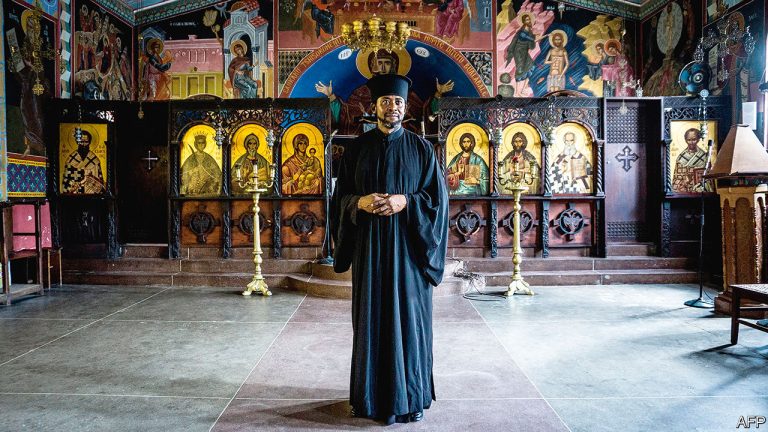Your browser does not support the element
Ohon the hillside In Kisii, western Kenya, the congregation of St. Peter’s Church gathered for a special mass on January 7. “In the Russian calendar…today is Christmas,” says priest Hezekiah Johnson Otara. To mark the occasion, Mr Otara chose four girls from around 70 devotees and promised to pay their school fees for the coming year.
Mr. Otara is one of several African priests who have turned to the Russian branch of Orthodox Christianity as the fallout from the war in Ukraine has unintended consequences across the world. He joined the Patriarchal Exarchate of Africa, which claims jurisdiction over more than 200 parishes in 25 African countries and plans to build schools, hospitals and cathedrals, including a huge “spiritual center” opposite the presidential palace in Uganda.
One possible reason for the Russian Church’s African adventure is the destruction of the Alexandrian Patriarchate, a branch of the Greek Orthodox Church. The Russian Orthodox Church considers all Ukrainian Orthodox Churches to be under its authority. But in 2019, the Greek Orthodox patriarchs of Constantinople and then Alexandria recognized the independence of the new Orthodox Church of Ukraine. Patriarch Kirill, head of the Russian Church, severed relations with Alexandria and Constantinople, condemning their support for Ukrainian “schismatics.”
In revenge, the Russians are now attacking the Greek Orthodox Church, which claims exclusive jurisdiction over Africa and accuses the Russian Church of trying to lure its priests with money. “They want to humiliate us because of our links with Ukraine,” says Archbishop Makarios of Nairobi.
Most of the Russian Church in Africa’s priests, including Mr. Otara, are Greek-trained clerics who have changed teams. In Kenya alone, at least 90 have defected, almost half the total number of African priests whose loyalty the Russian Church now claims to rely on. When asked why he joined the Russians, Mr. Otara cites the “schism” in Ukraine. He does not deny, however, that this decision also brought rather material benefits: they doubled his salary, paid for his son to study nursing in Moscow and contributed money to the orphanage he also runs.
Russia may have more than just ecclesiastical goals in mind. “Punishing the Patriarchate of Alexandria was just a pretext,” explains Cyril Hovorun, a Ukrainian theologian. He believes the Russian Church entered Africa to spread propaganda and stir up hostility toward the West. The idea is less ridiculous than it seems at first glance. The Russian Church’s favorite topic – “traditional values” and how the decadent West wants to pervert them – aligns with conservative religious views in Africa, where clerics tend to oppose homosexuality .
Yet the Russian incursion appears timid and poorly financed. Most of its churches are cabins like the one in Mr. Otara’s parish. It seems that he built neither a school nor a hospital. Even evidence of a well-organized propaganda campaign is rare on the ground. The Russians could pay more, but many priests are still too busy making ends meet to take on the West. “I usually do some work,” says one of the church’s priests in western Kenya, who runs a shop in his spare time. “It’s for my survival and for my children.”
Many of the Russian Church’s problems can be blamed on erratic leadership. Leonid Gorbachev, former bishop of Klin, was initially appointed to lead the African outpost. Mr. Hovorun, who knew him when he was a student in Athens in the early 2000s, says he was always more interested in “Russian (military) canons than in the canons of the Church.” Mr. Gorbachev later became a staunch supporter of Yevgeny Prigozhin, the late leader of the Wagner mercenary group. He was fired shortly after the failure of Prigozhin’s mutiny last summer.
The defenestration plunged the African Church in Russia into disarray. Its priests say they face funding cuts. The projects were put on hold. Mr. Hovorun believes that the company is going out of business. Even if it is only wishful thinking, Russia’s holy adventure seems more fanciful than threatening. ■


